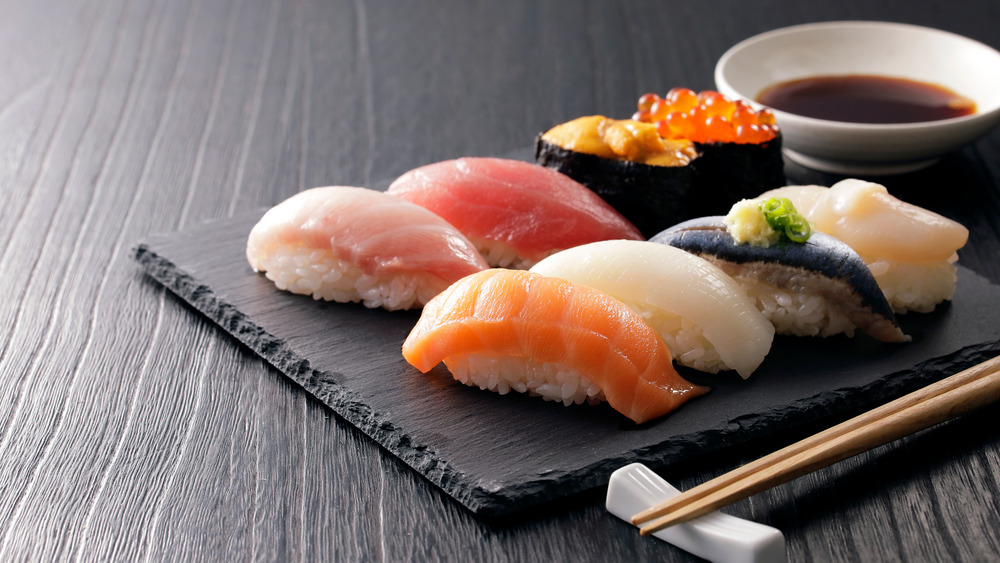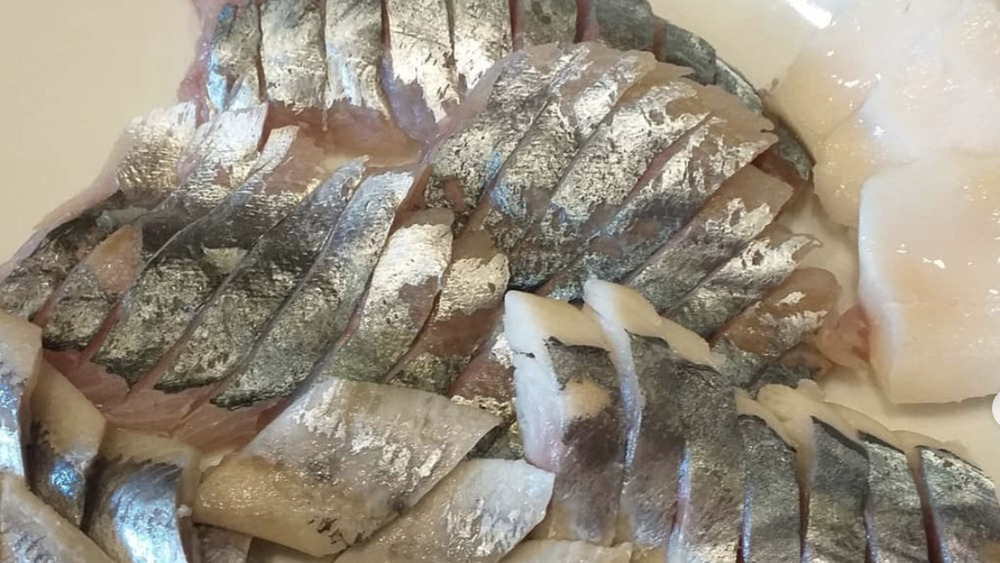Why You Should Avoid Ordering White Tuna
If you're someone who's more surf than turf, you're likely flipping right to the seafood section of the menu whenever you go out to a nice restaurant. Shrimp, scallops, crab legs, even lobster — there are so many options to choose from. And that's not even including all of the different types of fish, like tuna, which is one of the most popular seafood dishes in the United States. Global Seafoods reports that Americans eat over 700 million pounds of tuna every year. There are 15 different species of the fan-favorite fish, including white tuna, which is especially popular at high-end sushi restaurants.
Also known as albacore, true white tuna is actually pinkish in color, milder in flavor, and much more expensive than other tuna species. It's something that a lot of people gravitate to for sashimi, especially. However, it's also something that chefs and fish industry experts warn you might want to avoid. Here's why white tuna probably isn't the best thing to order.
You're likely getting scammed
When you ask for white tuna, you likely expect to get, well, white tuna, right? Unfortunately, that's not necessarily the case at many restaurants. An investigative study by Oceana found that 59 percent of tuna served at restaurants across the country was mislabeled. And white tuna in particular was a major offender — 84 percent of the white tuna sampled during the study was actually escolar, a fattier type of fish that looks similar to albacore. Sushi chef Masaki Saito told Food Republic that restaurants often do this to save on costs, while another chef, Yoshihiko Kousaka, explained that in Japan, it's actually illegal to serve escolar.
And as frustrating it is to realize you're not being given what you actually ordered, it can also be harmful. Escolar, which is often disguised as white tuna, is very oily and can cause stomach problems in many people. This may be TMI, but Kitchn cautions that the oils in the fatty fish can even lead to explosive diarrhea. No thank you.

